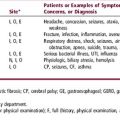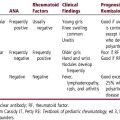Chapter 6 Ethics
CONFIDENTIALITY
GENETIC TESTING IN CHILDREN
END-OF-LIFE ISSUES
IMMUNIZATION AS A BENEFIT TO SOCIETY
How Should I Explain to Parents the Recommendation to Immunize Children?
♦ Every decision in the care of children has an ethical component.
♦ Most pediatric patients cannot give informed consent; parents and legal guardians give informed permission.
♦ Children should contribute to their own medical decision making to the extent they are developmentally capable as part of the process of assent/dissent.
♦ Confidentiality is key to all clinical encounters, but it is especially important with adolescents.
♦ Genetic testing in pediatrics requires careful consideration.
♦ The child’s best interest must guide decisions at the end of life.
Case 6-1 Grandparents bring a 6-year-old child to the office for pre-kindergarten immunizations and a routine health supervision visit. The child is staying with them while the parents are undergoing a divorce. They do not have a signed release (healthcare power of attorney) from the parents.
Case 6-2 A 16-year-old adolescent requested to speak with you in private about health issues. He has a sexually transmitted disease. You discuss this health issue with him and determine that he has the developmental capacity to understand the nature of his condition, the recommended treatment, and alternatives. After the appointment, his parents demand that you tell them what you have just discussed with their son.
Case 6-3 The mother of a 2-month-old infant refuses immunizations because she is afraid that immunizations will “overload” her baby’s immune system.
Case 6-4 The maternal grandmother of a 3-year-old girl was recently diagnosed with Huntington’s disease. The mother of the child is currently undergoing genetic testing for this disease and would like you to test her daughter for the disease as well.
Case 6-5 Despite intensive medical efforts, a 12-year-old boy is dying of cancer. His parents and care providers meet and determine that his goals of care should change from aggressive attempts to cure to providing palliative care. His parents state that they do not want anyone to tell the child that he is dying.
American Academy of Pediatrics, Committee of Bioethics. Informed consent, parental permission, and assent in pediatric practice. Pediatrics. 1995;95:314.
American Academy of Pediatrics, Committee on Bioethics. Responding to parental refusals of immunization of children. Pediatrics. 2005;115:1428.
American Academy of Pediatrics, Committee on Bioethics. Ethical issues with genetic testing in pediatrics. Pediatrics. 2001;107:1451.
American Academy of Pediatrics, Committee on Medical Liability. Consent by proxy for nonurgent pediatric care. Pediatrics. 2003;112:1185.
Himelstein BP, et al. Pediatric palliative care. N Engl J Med. 2004;350:1752.
Society for Adolescent Medicine. Confidential health care for adolescents: position paper of the Society for Adolescent Medicine. J Adolesc Health. 2004;35:150.






